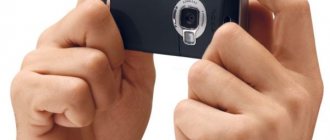The detention of a citizen by the police is not uncommon. According to Russian law, a law enforcement officer has the right to detain any person if there are certain grounds for this. But often the detainees themselves do not believe that they have violated any law, and try to prove that they were detained illegally.
Let's figure out how, when and under what circumstances a police officer has the right to detain a citizen, and when this is an abuse of his powers.
Police detention: essence and interpretation of the concept
Detention is an event carried out by law enforcement officials, as a result of which a citizen is deprived of the opportunity to move freely, and the police officer has the opportunity to forcibly bring him to the authorities.
So who has the right to detain a citizen? Any authorized police officer can conduct an arrest; in this case, he is obliged to deliver the detainee to law enforcement agencies as soon as possible.
In addition, representatives of the traffic police and security units, bailiffs, employees of drug control organizations and border services have the right to detain a citizen.
On what basis can the police detain
There are more than enough grounds for detaining a citizen ; as a result of even one of them, a police officer can detain a person and take him to the police department for further proceedings.
All of them are enshrined in paragraph 2 of Article 14 of the Federal Law “On Police”.
Here are some of them:
- suspicion of participation in a crime;
- a court ruling that the citizen should be taken into custody;
- the need to draw up a protocol on an administrative offense;
- evasion of punishment in the form of arrest;
- person search;
- conducting administrative proceedings;
- evasion of execution of court-ordered medical or educational compulsory measures;
- curfew violation;
- illegal stay in protected areas;
- suicide attempt;
- the presence of severe mental disorders that pose a danger to others;
- the need to deport a person to the state of which he is a citizen.
In the absence of any of these grounds for police detention, the action will be considered illegal.
Law enforcement actions
After an administrative detention has been made and the corresponding protocol has been drawn up, the period of 48 hours (in some cases less) begins to run.
Once the maximum arrest time has expired, the citizen must be charged or released. If during this period evidence of a person’s guilt was found, a preventive measure is taken against him.
Further detention in custody is not such a measure in this case. A citizen may be given a written undertaking not to leave the place or a measure in the form of arrest at home may be taken against him.
If a citizen has committed a crime of particular gravity, he may be left in the place of detention until a guilty verdict is announced. Moreover, such an arrest must be authorized by the court by issuing an appropriate resolution.
Detention procedure
The procedure for detaining a citizen by a police officer has a certain procedure , adherence to which ensures the legality of this event.
It includes specific actions:
- indicate your position, rank, surname, explain the purpose for which you are addressing the citizen, show your identification upon request, present it in expanded form and give time for familiarization (the police officer should not hand it over);
- explain the reasons for the detention, explain the rights, including the right to refuse explanations, legal assistance, notification of relatives, and also to an interpreter, if necessary;
- draw up a detention report;
- provide a five-minute telephone call to relatives, employer, place of study or lawyer no later than 3 hours from the moment of arrest.
Whom does the detainee have the right to call?
The legislation does not clearly indicate the list of persons who can be called as part of the exercise of their rights.
The right to a telephone call is guaranteed to a detainee for a reason, but so that he can notify his loved ones about his whereabouts and the fact of detention. He can call his wife, children, parents and other close people and relatives.
If you were unable to call your loved ones, you can report the incident to third parties.
How to behave when arrested
It is very important, especially if the arrest occurred without reason, to know your rights:
- Be informed of the reason for the arrest.
- To communicate about your rights and responsibilities.
- To use medical care if necessary.
- Review the protocol, demand a copy of it, refuse to sign it and provide testimony, and even have the right to make your own adjustments to the protocol.
- To challenge the unlawful behavior of the employees who took part in this arrest.
- To notify the next of kin about the current state of affairs, as well as managers in the field of primary activity and a personal lawyer.
- To any conditions specified in the law, including the period of detention, as well as the absence of cruel treatment.
To prevent the situation from becoming even more complicated , when detained and taken to the police station, it is necessary to establish contact with your relatives and describe to them your situation and whereabouts. The best option would be if they have an idea of who and where to contact in this case (lawyer, lawyer, etc.)
Important! As a “prevention”, you should always have at least some documents with you. And if the original passport can be taken away, then a copy of it will allow you to avoid detention to establish your identity.
Upon arrival at the point of delivery of the detained citizen, a protocol will be created.
You need to read it carefully and compare the data with the actual state of affairs.
In any case, this paper will be certified by witnesses, and the presence of the detainee’s signature does not admit his guilt.
All you have to do is add a refusal to testify before negotiations with a personal lawyer and a request to consider this case at your place of residence.
A photocopy of the protocol must be provided to the detainee , otherwise this fact should be added to the postscript to the protocol.
Detention of a minor
Minor citizens can also be detained by the police if there are grounds for this.
A child may be detained for the following actions:
- begging;
- consumption of alcohol or drugs;
- socially dangerous behavior that can cause harm to others or to oneself;
- homelessness and neglect;
- law violation.
When a minor is detained, a police officer is obliged to immediately notify his parents, guardians or other legal representatives about this, and inform which department the detainee will be taken to.
A minor may be detained until his identity is determined if he was stopped by the police on the street and did not have documents. Also, a child can be detained if he is in public places after 23.00 unaccompanied by adults , under these conditions he is considered homeless and can be taken to the department.
Attention! An official does not have the right to search a minor citizen; a search can be carried out and processed only if the detainee has given his consent to this. A protocol must be drawn up indicating everything that was shown during the inspection. Only instruments used to commit criminal acts are subject to immediate confiscation.
It is especially important for teenagers to know what to do if they are detained by the police.
During detention you must behave correctly:
- do not panic;
- do not argue with the policeman;
- if identification was not presented, you should politely ask for it;
- ask the reason why the employee contacted you;
- if you need to go to the police station, you need to calmly go there with a police officer;
- do not attempt to escape or resist;
- provide the contact details of the parents and wait for their arrival.
Important! You must carefully read what you are given for signing, including inspection protocols.
A minor also has the right to a lawyer , which he must be informed about during detention.
Conversation restrictions
Investigators have the right to introduce restrictions on the right to make a telephone call. This opportunity is guaranteed to them by Part 4 of Art. 96 Code of Criminal Procedure. This decision is justified by the need to preserve the secrecy of the fact of detention in the interests of the investigation. To restrict the right to make a call, there must be a reasoned resolution of the inquiry officer or investigator with the consent of the prosecutor.
The introduction of restrictions is not permitted if the suspect is a minor.
In any case, the legal representatives of the minor are notified of the incident as soon as possible.
For how long can a citizen be detained?
Article 27.5 of the Code of Administrative Offenses of the Russian Federation states that a citizen may be detained, depending on the reason for this detention, for the following periods:
- 3 hours. If the detainee was intoxicated or under the influence of drugs, he may be detained for no more than 3 hours from the moment of his delivery to the police station or sobering up center.
- 48 hours . If the detainee has violated the border regime, the conditions of being on the territory of the Russian Federation, any territorial or maritime borders, as well as in the event of a need to clarify the circumstances of the incident or establish an identity, if the detainee is a defendant in a case of an administrative offense, the period of detention is limited to two days.
If a citizen is suspected of committing a crime , according to the Code of Criminal Procedure of the Russian Federation, he may be detained for the following time:
- 48 hours from the time of immediate restriction of the ability to move (until a court decision is made).
- 72 hours after the court decision to extend the period with the date and time until which the restriction of freedom is extended.
After 5 days from the moment of detention and placement of the detained person in a place of restriction of freedom, the citizen must be released in the case where the suspicion has not been confirmed by evidence, or taken into custody in connection with the choice by the court of this preventive measure or another method of restricting choice and freedom.
Is it possible to reduce the length of detention? Yes, if you have already called a lawyer and behave with dignity - without arguing, without insulting the police and, being absolutely confident in your innocence, calmly talking about your alibi.
Detention for 72 hours (3 days)
Police officers cannot detain a citizen for longer than two days. This can only be done at the discretion of the court hearing the criminal case against the person. The procedure for detention for 72 hours is determined by paragraph 3 of part 6 of article 108 of the Code of Criminal Procedure of the Russian Federation.
Grounds for detention for three days
The basis for detaining a suspect for three days is a court order. Such a decision may be made when one of the parties, when considering the issue of placing a person in custody, petitioned to postpone the court hearing to present additional evidence.
In fact, the detention is extended for another 72 hours and only if the court considers it legal and justified. It indicates the date and time the detention ends.
Note!
The petition can be filed no less than 8 hours before the end of the first period of detention - this is the maximum period required for the court to bring the suspect to the courtroom, consider and make a decision on the petition.










